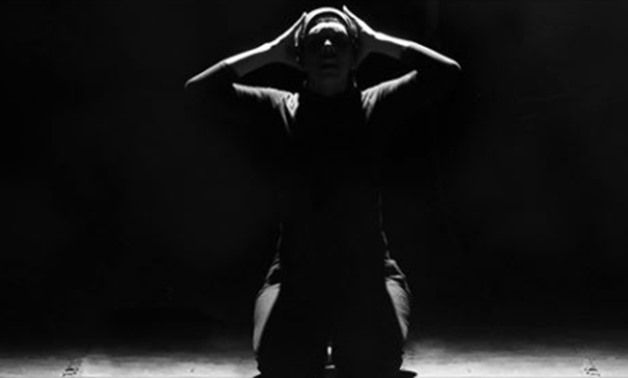
The play “Strangled her” – Wlessa Official Facebook Page
CAIRO – 30 November 2017: The Anti-harassment Unit at Cairo University will host the Wlessa band to perform the play “Strangled her” (Teh Makhnou’a) for four successive days starting from Sunday, December 3, as part of the 16 Days Activism against Gender-Based Violence (GBV) Campaign running between November 25 and December 10.
Since its foundation in 2014, the Anti-harassment Unit in Cairo University has organized a program every year on the sidelines of the UN campaign for women to raise awareness concerning violence against women in Egypt.
Deputy Director of the Unit Ghada Ali said that the program mainly includes cultural symposia on violence against women, sexual harassment, and outdated social norms against women, as well as highlighting the problems women face based solely on their gender.
One of the main plays that will be presented is “Strangled her.” The comedy centers on the pain every woman encounter in society due to gender discrimination, patriarchal family upbringing, Female Genital Mutilation (FGM), sexual harassment, and many more issues.
After the show, a seminar will be held to discuss these problems and ways to solve them. In addition, arts workshops are set up to help girls express their inner feelings and speak up through drawings and artwork.
“Art is the most influential way, and is more powerful than words, to raise awareness about sexual harassment and to bring up generations with moral values. For example, we teach girls through plays and videos how to protect themselves from harassment,” noted Ali.
Ali pointed out that the films, series, television shows and songs have a powerful effect in shaping people’s lives. It is often thought violence against women and children increases in society in correlation to the increase of negative impact of the media.
Hence, within their program, the unit proves that mass media also has positive effects and could be used to combat this phenomenon by presenting videos from real life.
“In our unit, we depend on the idea that university students are the most essential category in societies as they would bring up future generations.
That is why, through them we could break the outdated norms spread among families who; for example, wrongly teach their girls to run away without speaking up when they are verbally abused. By teaching those students the best ways to face such problems, societies will get rid of the old and wrong traditions,” Ali explained.
In the International 16-day campaign running between November 25 and December 10, the United Nations Population Fund (UNFPA) presented photos of objects collected from actual abuse cases around the world.
The objects range from mundane possessions, like mute witnesses to abuse, to items used against women or girls, like weapons. They also include pictures of places where women have sought refuge and places where men sought recovery.
The aim of presenting these objects is to spotlight the unspoken epidemic of violence against girls and women across the globe, in every culture, community and country. They help show the true scope of violence against women and the need for action to end this epidemic, affecting more than 70 percent of girls and women around the world.
The 16 Days of Activism against the Gender-Based Violence (GBV) Campaign aims to both reflect on violence against women and remind people that they can take action now and throughout the year to eliminate that violence in all its forms.
The campaign is an annual international campaign that starts on November 25, the International Day of the Elimination of Violence Against Women, and ends on December 10, the Human Rights Day. It highlights that any form of violence against girls and women is a human rights violation. The 16 days also overlap with the International Women Human Rights Defenders Day on November 29.
This article is part of Egypt Today’s campaign “Break the Silence ... Say No to Violence” marking the 16-Day campaign of activism against gender-based violence GBV from November 25 to December 10.


Comments
Leave a Comment